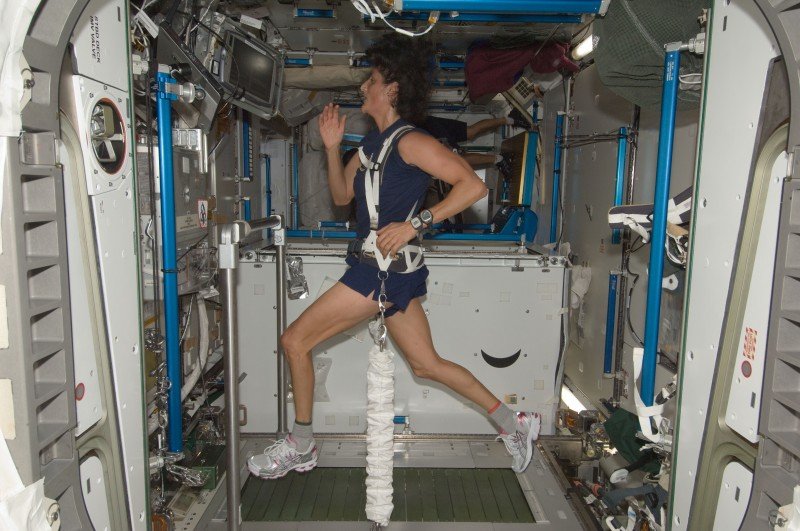Patient Resources
Get Healthy!
Exercise Can Preserve Astronauts' Heart Health on Long Space Flights
- October 2, 2023
- Cara Murez
- HealthDay Reporter

Extensive exercise regimens are keeping astronauts healthy and protecting their hearts during extended space missions, new research finds.
A study from scientists at UT Southwestern Medical Center in Dallas found no loss of heart mass or output, and no loss of function in the heart's ventricles, during flights that can last up to six months.
The findings could have implications for treating diseases in which gravity plays a role. They also could help in planning longer missions, such as to Mars.
"Our study shows that, remarkably, what we are doing in space to preserve heart function and morphology is pretty effective,"said senior study author Dr. Benjamin Levine. He is a professor of internal medicine in the division of cardiology at UT Southwestern.
It has been known that when astronauts return to Earth, they typically experience a dramatic loss in blood pressure. A key cause is remodeling that the heart experiences because of space's microgravity conditions.
While in space, astronauts' bodies don't have to counteract the effects of gravity. That means their bodies are working less hard. It's similar to what someone would experience while on bed rest, the researchers explained.
The heart muscle mass decreases by an average of 1% per week while in space and the volume of blood that the heart holds also drops.
It was not known whether the two hours of exercise the astronauts on the International Space Station (ISS) do daily could counteract this extended time in zero gravity. The astronaut exercise programs included both strength training and aerobic activity.
So, the researchers studied this in data in 13 astronauts who had missions on the space station between 2009 and 2013. Missions lasted an average of 155 days.
Data included measurements of blood pressure, the amount of blood pumped per beat and blood flow per minute before, during and after each astronaut's mission.
Cardiac MRI scans were used to assess heart anatomy about two months before spaceflight and then again three days after the astronauts' return to Earth. They were scanned again three weeks later.
The researchers found that astronauts' blood pressure decreased significantly during spaceflight compared to on Earth. Their heart performed about 12% less work.
But both left and right ventricles showed no decrease in muscle mass, and the amount of blood pumped out of the heart stayed the same.
"There's nothing magical about space and microgravity. The heart is quite plastic and responds to changes in physical activity,"Levine said in a medical center news release. "It's reassuring that the training astronauts are doing in space can protect their hearts from the risks inherent to spaceflight, even on extended missions."
Previously published work had shown a dilation of the atria in these same astronauts, Levine said. This meant they could be at risk for atrial fibrillation (an irregular heartbeat) during longer duration missions, so his team is now studying this.
This study, published recently in the Journal of the American College of Cardiology, was funded by a NASA grant.
More information
NASA has more on astronaut health.
SOURCE: UT Southwestern Medical Center, news release, Sept. 27, 2023

